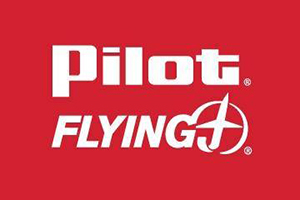Senior Reporter
Appellate Court Overturns Convictions of Former Pilot President, Two Executives

[Stay on top of transportation news: Get TTNews in your inbox.]
A federal appellate court has overturned the fraud convictions of former Pilot Flying J President Mark Hazelwood and two ex-Pilot sales executives on the grounds that a lower federal court permitted use of evidence that should not have been admitted.
In a 2-1 vote, the 6th U.S. Circuit Court of Appeals panel reversed the convictions of Hazelwood and two of his co-defendants, former Pilot executives Scott Wombold and Heather Jones. The three were convicted by a Chattanooga, Tenn., jury on Feb. 15, 2018, in connection with a multimillion-dollar fraud scheme to siphon fuel rebates away from thousands of truckers.
In reversing the convictions, the court remanded the case to the district court for a new trial.
In its Oct. 14, 40-page opinion, the appeals court said the federal district court admitted recordings of Hazelwood using “deeply offensive racist and misogynistic language” on the theory that if he was, “reckless enough to use language that could risk public outrage against the company, he was a ‘bad businessman,’ and as a bad businessman, he was also reckless enough to commit fraud.”
The majority opinion was authored by Circuit Judge Richard Suhrheinrich, supported by Circuit Judge Eric Murphy. Circuit Judge Bernice Donald dissented.

The recordings were made undercover by Vince Greco, a member of Pilot’s direct sales team who agreed to cooperate with federal agents in the investigation that led to the charges in the case, the appeals court said.
“This is vintage bad character evidence and precisely the type of reasoning the Federal Rules of Evidence forbid,” the appellate court said. “The use of the audio recordings in this case jumped the rails of those rules.”
“First, none of the Rules of Evidence support the recordings’ admissibility,” the court said. “Second, and more importantly, even if somehow otherwise admissible, the recordings are a textbook violation of Rule 403, because the risk of unfair prejudice eviscerates any purported probative value.”
Rule 403 says a court “may exclude relevant evidence if its probative value is substantially outweighed by a danger of one or more of the following: unfair prejudice, confusing the issues, misleading the jury, undue delay, wasting time, or needlessly presenting cumulative evidence.”
“We are aware of the 6th Circuit’s reversal yesterday,” said a Pilot Flying J spokesperson. “In that the company is not a party to this litigation, we have no further comment.”
Hazelwood’s jury trial lasted more than 27 days. The government called nearly 30 witnesses, including cooperating Pilot employees who pleaded guilty for their roles in the conspiracy. The government also presented emails among the alleged co-conspirators, and undercover audio recordings.
“This appeal arises primarily from the admission of three of those tapes, wherein Hazelwood can be heard using profanity, making racial slurs and belittling women,” the appellate court wrote.
In all, federal prosecutors beginning in 2013 charged 18 employees in Pilot’s direct-sales division with conspiracy to defraud Pilot’s trucking-company customers by falsely promising discounted fuel prices, and then secretly shorting those customers on the promised discounts through deceptive invoicing and rebate techniques.

Over the past few episodes, we've had the chance to listen to the experiences of industry leaders and the strategies and planning that go into finding the right people for your workforce. Host Michael Freeze reviews the most important bullet points, from technician and driver training to incorporating diversity in recruitment and retention. Hear a snippet, above, and get the full program by going to RoadSigns.TTNews.com.
Prior to Hazelwood’s trial, 14 former Pilot sales executives had been charged, pleaded guilty and agreed to cooperate with the government while awaiting sentencing. On Sept. 26, 2018, Hazelwood was sentenced to 12½ years in prison for his leadership role and fined $750,000.
The Pilot case began with a raid on the company’s headquarters in Knoxville, Tenn. More than 50 FBI and IRS agents poured into the company’s three-story offices on the afternoon of April 15, 2013. In addition to searching for records and computer files, they had plans to quickly isolate 14 key Pilot executives for interviews.
Since then, Pilot has paid the federal government a $92 million penalty to take responsibility for the criminal actions of the employees involved, but the agreement did not preclude individual prosecutions.
In November 2013, a federal judge in Arkansas approved an $84.9 million settlement offer from Pilot to reimburse as many as 5,500 customers included in a class-action lawsuit against the company.
Want more news? Listen to today's daily briefing:
Subscribe: Apple Podcasts | Spotify | Amazon Alexa | Google Assistant | More



